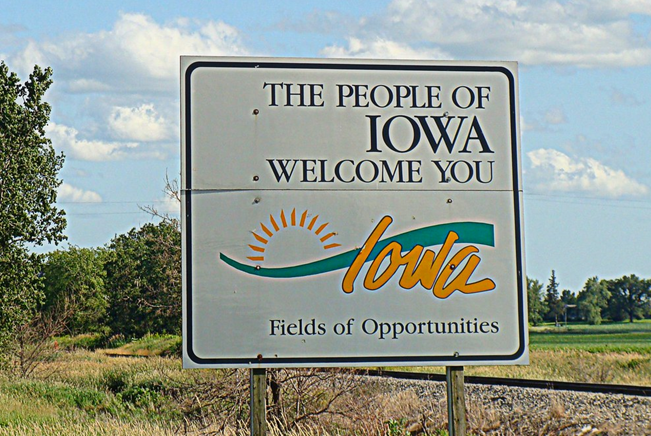Death to the Iowa Caucus

While Democrats are trying to fix this nation’s broken political system while they hold the extremely narrow trifecta, they have in-house work to do too. Top of the agenda: ending the Iowa Caucus playing its ridiculously outsized role in determining the presidential candidate.
Iowa’s decades-long lock on the nominating process has been under threat since last year’s disastrous caucus, when results were delayed for days due in part to a faulty smartphone app that was supposed to make things easier for precinct captains when they reported results. Ultimately, the Associated Press never declared a winner in the contest due to problems with the vote count, which was administered by the Iowa Democratic Party.
Iowa’s voters are also older, more rural and more white than many other states and it’s seen as increasingly out of step with the Democratic mainstream, which increasingly relies on voters of color and young people for its support.
President Biden’s newly-installed pick to lead the Democratic National Committee, Jaime Harrison of South Carolina, will get a chance to shake up the calendar by appointing members to the party’s rules and bylaws committee. Unlike past presidents, Biden didn’t win in Iowa (he came in fourth, after former South Bend, Ind., Mayor Pete Buttigieg and Sens. Bernie Sanders and Elizabeth Warren) and owes no political debt to the complex caucus process.
“I think on its merits that the Iowa caucus falls short of the values that we espouse as Democrats,” Julian Castro said. Castro served as Housing and Urban Development Secretary for former President Barack Obama and ran for president himself in 2020.
Castro, who dropped out of the race before the Iowa caucuses, made the argument during the campaign that 2020 should be the last year Iowa goes first and that a primary election run by the state makes much more sense than a caucus run by the party.
“You have one person, one vote instead of an archaic formula to figure out who wins the whole thing,” Castro said.
Probably the one thing Iowa has going for it is that all the campaign insiders know the state so well. They know who to call, how to schedule events, local media, etc. If the first state changes to South Carolina, that’s much harder for them, though that state’s first in the South primary certainly helps. If it changes to some random state that changes every four years (how it should be), they are going to be pretty clueless. Do they know who to call in New Mexico or Oklahoma? Not really.
But with widespread disgust at how Iowa ran its caucus, the undemocratic nature of caucuses, and the fact of an old, white, rural state creating frontrunners every four years in an incredibly diverse political party, I think Iowa’s time has come. New Hampshire is barely any better though and can’t be the replacement. States with actual Black people seems like a good place to start.


